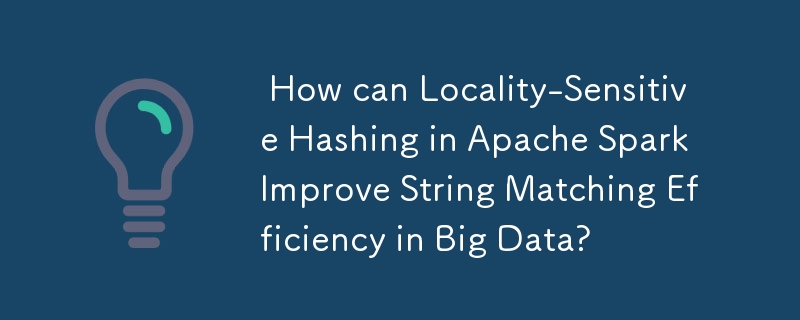

Matching strings efficiently in a big data environment like Apache Spark can be challenging, especially when dealing with potential variations in the data. In this scenario, the task is to match texts extracted from screenshots with a dataset containing the correct text. However, the extracted texts may contain errors such as character replacements, missing spaces, and omitted emojis.
One potential solution is to convert the task into a nearest neighbor search problem and leverage Locality-Sensitive Hashing (LSH) to find similar strings. LSH reduces the dimensionality of the data while preserving its proximity, allowing for efficient and approximate matches.
To implement this approach in Apache Spark, we can utilize a combination of machine learning transformers and the LSH algorithm:
By combining these techniques, we can create an efficient string matching solution in Apache Spark that can handle variations in the input texts. This approach has been successfully applied in similar scenarios for tasks like text matching, question answering, and recommendation systems.
The above is the detailed content of How can Locality-Sensitive Hashing in Apache Spark Improve String Matching Efficiency in Big Data?. For more information, please follow other related articles on the PHP Chinese website!
 How to check server status
How to check server status
 How to solve the computer prompt of insufficient memory
How to solve the computer prompt of insufficient memory
 How to optimize a single page
How to optimize a single page
 What should I do if the web video cannot be opened?
What should I do if the web video cannot be opened?
 How to implement linked list in go
How to implement linked list in go
 How to buy and sell Bitcoin legally
How to buy and sell Bitcoin legally
 Introduction to the main work content of the backend
Introduction to the main work content of the backend
 Use of jQuery hover() method
Use of jQuery hover() method
 Why does the computer have a blue screen?
Why does the computer have a blue screen?




